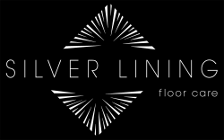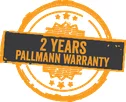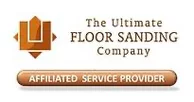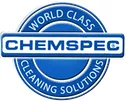Looking After Your Oiled Floors
Taking care of your oiled floors is a breeze. Magic Oil, suitable for both residential and commercial environments, brings out the natural beauty of your floor while providing protection against spills and stains. Unlike lacquered floors, scratches on oiled floors add character, and patch repairs are possible. Here’s how to maintain your oiled floor:
- Act promptly: Clean up spills and stains immediately to prevent long-term damage. Even the toughest finishes have limits.
- Regular cleaning: Use a neutral floor cleaner recommended by the manufacturer to clean your floors regularly. Follow the instructions provided in the datasheets.
- Extra protection: Periodically, apply magic oil care for an additional layer of protection. Note that spills should still be cleaned up promptly.
- Cleaning process: Start by removing dry soil by vacuuming or sweeping. Then, use a high-quality microfiber mop to apply the diluted product and mop the floor. Allow the floor to dry, which should take no longer than 10 minutes.
Why oil in the first place?
Is lacquer better than oil? In the long run, the answer is no. While lacquer may offer slightly better protection initially, it requires full restoration when worn and doesn’t age gracefully. Oiled floors, on the other hand, develop character with scratches. The choice between lacquer and oil also depends on the desired sheen, with lacquer offering a shinier appearance.
- It reveals the natural beauty of your floor & brings the grains up and makes your floor look more natural
- It also seals the floor & protects it from spills and stains
- Scratches on oiled floors add character and become less obvious with maintenance while on lacquered it makes the floor look ugly
- A damaged oil floor can be patch repaired while lacquered has to be fully sanded off and redone
It’s worth noting that oil is not suitable for every type of wood, such as bamboo timber.
In terms of health, magic oil is one of the most natural and healthiest products available. It’s a step above having no finish at all, which is not as durable.
How to look after your oiled floor?
While there is no foolproof finish for your floors, it’s important to clean up spills and stains promptly. Just like bulletproof vests are not 100% bulletproof, no floor finish is completely impervious. Regular cleaning with a neutral floor cleaner is recommended, following the manufacturer’s instructions provided in the datasheets.
For added protection, you can use magic oil care periodically. This thin film finish provides an extra layer of defence for your floor. However, it’s crucial to remember that spills should still be cleaned up as soon as possible, regardless of the additional protection.
The frequency of using magic oil care depends on factors like traffic, daily/weekly usage, and maintenance. Areas with higher footfall, such as the kitchen, may require more attention compared to less frequented spaces like the bedroom. Assess the condition of your floor and adjust the usage of magic oil care accordingly.
By practising regular maintenance and attending to spills promptly, you can keep your oiled floors in great shape and ensure their longevity.
How do I clean my oiled floor?
- First, remove the dry soil. Either by vacuuming or sweeping.
- We recommend that you use a flat, microfibre, good-quality mop.
- Spray some diluted Neutral cleaner like Pallmann Clean Neutral on the floor and then mop it, leaving the floor to dry.
- Drying times should not take longer than 10 minutes.
- You may use Magic Oil Care undiluted or diluted 1:2 with water for extra protection
- Leave 1h before walking
You can purchase all the needed products recommended by us.
Just click on the links below and add them to the cart.
- Pallmann Flat Microfibre Mop
- Pallmann Clean Neutral
- Pallmann Clean Strong – for stubborn stains
- Magic Oil Care
What about the health factor?
In terms of health, Magic Oil is one of the most natural and healthiest products available. It’s a step above having no finish at all, which is not as durable.
You also might find these articles valuable.











